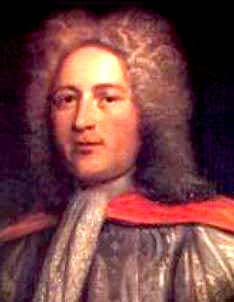 William Croft (1678–1727) was the most successful English musician of his generation. His style forms a natural bridge between that of Purcell and the High Baroque. He composed works for the funeral of Queen Anne in 1714 and for the coronation of King George I the following year. His Burial Service (1724) described as “a noble classic of moving simplicity” has been used at state funerals ever since its publication.
William Croft (1678–1727) was the most successful English musician of his generation. His style forms a natural bridge between that of Purcell and the High Baroque. He composed works for the funeral of Queen Anne in 1714 and for the coronation of King George I the following year. His Burial Service (1724) described as “a noble classic of moving simplicity” has been used at state funerals ever since its publication.
Croft’s upbringing was unquestionably privileged—born into an ancient, landed family in Warwickshire, he was educated at the Chapel Royal, where he served (from 1700) as Gentleman of the Chapel Royal and later (from 1704) also as organist. In 1707 he assumed the post of “Master of the Children”, and the following year succeeded Blow (his teacher) as organist of Westminster Abbey.
He was deeply interested in the music of his predecessors, inspiring him to become one of the founding members of the Academy of Vocal Music (later the Academy of Ancient Music)—other members included Pepusch, Bononcini, and Geminiani. He was buried in the north aisle of Westminster Abbey close to Purcell and Blow, where a monument was built in his honour.
His secular songs are written in a similar vein to those of John Blow and Henry Purcell. Short arioso sections are interspersed with brief recitatives. Croft does shift the emphasis towards melodic structure rather than straightforward word-painting at any cost—yet his music is still engagingly programmatic and includes the odd nod towards Purcellian harmonies.
By Purling Streams is published by Green Man Press and is included in our South Sea Bubble programme.
